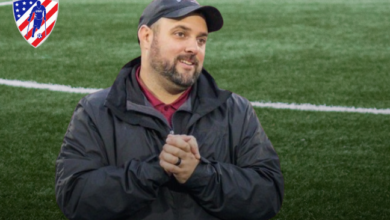Procrastination Station: Succeeding in College with ADHD
By Amy Guethlein, ’21
Finals week is already stressful for everyone, but for students with ADHD, crunch time is even more of a frustrating challenge. Attention deficit hyperactivity disorder, or ADHD, is a neurological condition characterized by inattentiveness, impulsiveness, and in some cases, hyperactivity. And it’s more common than you may think- according to the American College Health Association, roughly 11.8% of college students have reported being diagnosed with ADHD, or about every 1 in 9 students.
According to Very Well Mind, a website offering tips to help students with ADHD circumvent their issues when it comes to schoolwork, “One of the hallmarks of ADHD is problems with executive functioning, which are the skills that allow people to control behavior. This means students with ADHD may struggle with staying organized, sticking to a plan, and managing time effectively.” Sometimes, people don’t even recognize the signs or symptoms until they reach college. Rachel Moss, a student at Binghamton University, officially got diagnosed during her sophomore year. “I always struggled in school and never knew why- I spent those years thinking I was just lazy, careless, and forgetful. Everything finally made sense when I found out not only what was really going on with me but that I could get the help I needed. I felt understood.”
Moss emphasized that her ADHD became harder to ignore when she first started living away from home during her first semester. It’s completely natural to feel distracted, unfocused, and disorganized while attending college; being granted newfound freedom along with more responsibilities, aggressive course loads, new social situations, and less structured time can be incredibly overwhelming. For Moss, these sudden changes nearly sent her back home. “I felt like I was drowning in stress with overdue assignments and failing grades. I just couldn’t bring myself to do anything about it, and I didn’t know why. I thought college wasn’t for me for the longest time, but then I talked to a school counselor who made me realize there’s a difference between procrastination and ADHD.”
Research shows that ADHD students without a proper support system are more likely to have lower grades, fail classes, or drop out of college. Unfortunately, many struggling students either don’t know additional services exist at their school or are reluctant to ask for help because they don’t want to seem “weak” or “stand out” from their classmates. Mary (name withheld to protect her privacy), a student at Five Towns College, decided to seek help from the school when she saw her own patterns of ADHD cycling around with no end in sight. “I didn’t truly learn how to cope until I was out on my own because I really had no other choice… it was either flunk out or learn to adapt.” She spoke with a counselor, and together they found ways to customize her learning experience. Some of her new tactics include working in the library instead of her dorm room, copying down notes by hand, color-coding anything of importance, writing out her weekly schedule, and breaking down tasks into something small and doable to make them feel less daunting. She also recommends forming study groups to stay social and hold yourself accountable to complete your assignments on time. And most importantly, take breaks.
One of Mary’s biggest tips is not being afraid to ask for extra help. If you have a documented disability, you’re eligible for “reasonable accommodations,” meaning you can have more time on exams, homework extensions, quiet rooms to take tests, and more. Here at Five Towns, you can visit the Student Success Center to find out how they can help you succeed while developing skills to follow you even after your college journey.
ADHD manifests differently in each person, and it is more complex than just “being lazy” or “distracted” all the time. Those perceptions are only the surface level of the disorder when it is much more nuanced than most people expect. For those suffering, it can feel as though you’re constantly burning the candle at both ends. Fortunately, there are resources students can utilize to lessen the impact of their diagnoses, such as internet resources offering strategies to stay focused and productive, medication, as well as educational resources at their institutions. Ultimately, what’s clear is that students with this diagnosis have a selection of resources to help ensure their educational experience is fair, and they are valued just as much as students without those obstacles.
##






